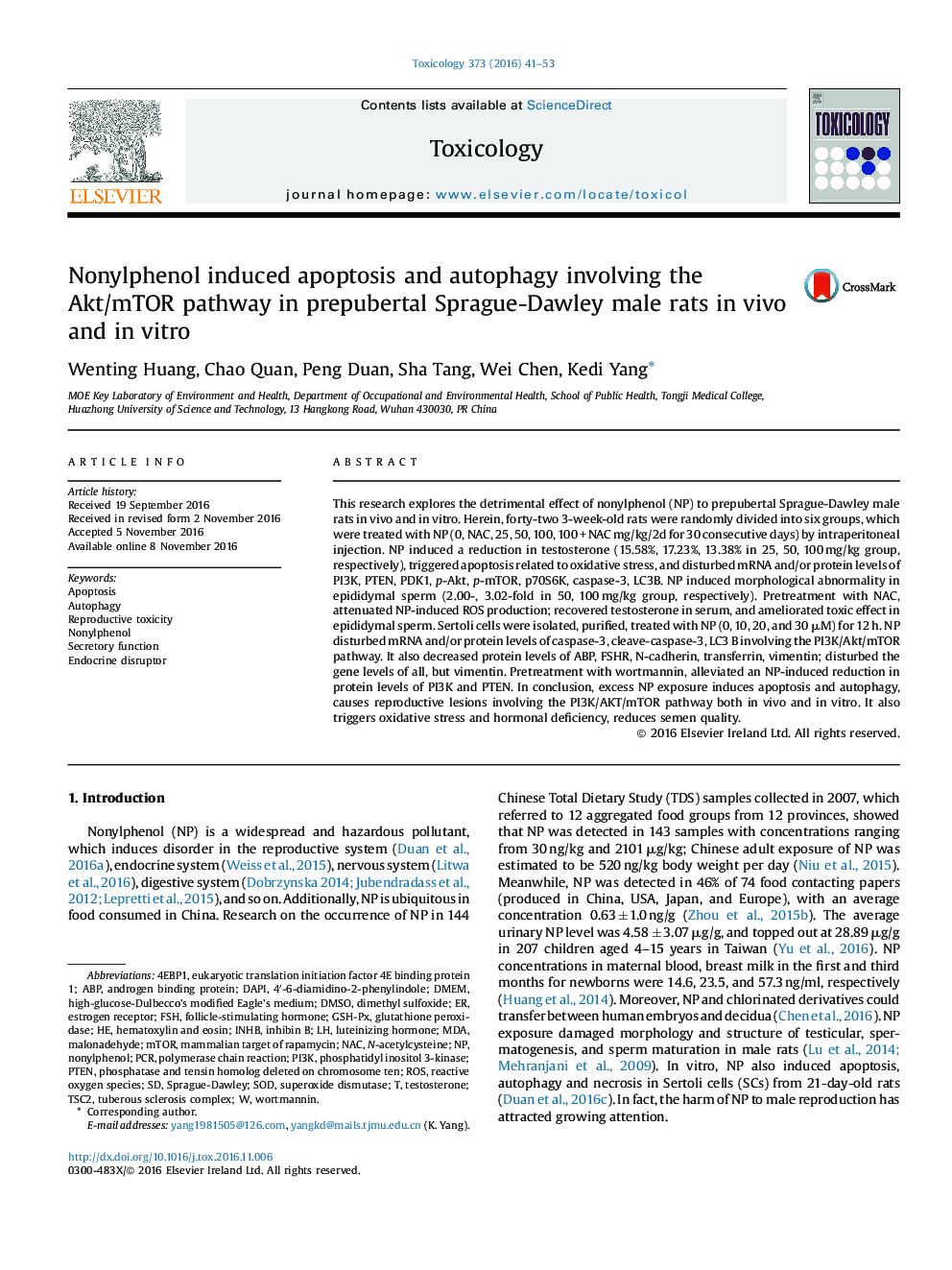| Article ID | Journal | Published Year | Pages | File Type |
|---|---|---|---|---|
| 5561902 | Toxicology | 2016 | 13 Pages |
â¢NP induced apoptosis and autophagy in testes of prepuberty SD rats in vivo and in vitro.â¢NP disturbed PI3K/Akt/mTOR pathways in vivo and in vitro.â¢NP triggered oxidative stress and hormonal deficiency, reduced semen quality.â¢NP damaged specific secretory function in Sertoli cells.
This research explores the detrimental effect of nonylphenol (NP) to prepubertal Sprague-Dawley male rats in vivo and in vitro. Herein, forty-two 3-week-old rats were randomly divided into six groups, which were treated with NP (0, NAC, 25, 50, 100, 100 + NAC mg/kg/2d for 30 consecutive days) by intraperitoneal injection. NP induced a reduction in testosterone (15.58%, 17.23%, 13.38% in 25, 50, 100 mg/kg group, respectively), triggered apoptosis related to oxidative stress, and disturbed mRNA and/or protein levels of PI3K, PTEN, PDK1, p-Akt, p-mTOR, p70S6K, caspase-3, LC3B. NP induced morphological abnormality in epididymal sperm (2.00-, 3.02-fold in 50, 100 mg/kg group, respectively). Pretreatment with NAC, attenuated NP-induced ROS production; recovered testosterone in serum, and ameliorated toxic effect in epididymal sperm. Sertoli cells were isolated, purified, treated with NP (0, 10, 20, and 30 μM) for 12 h. NP disturbed mRNA and/or protein levels of caspase-3, cleave-caspase-3, LC3 B involving the PI3K/Akt/mTOR pathway. It also decreased protein levels of ABP, FSHR, N-cadherin, transferrin, vimentin; disturbed the gene levels of all, but vimentin. Pretreatment with wortmannin, alleviated an NP-induced reduction in protein levels of PI3K and PTEN. In conclusion, excess NP exposure induces apoptosis and autophagy, causes reproductive lesions involving the PI3K/AKT/mTOR pathway both in vivo and in vitro. It also triggers oxidative stress and hormonal deficiency, reduces semen quality.
Graphical abstractPrepubertal NP exposure can trigger oxidative stress, disturb PI3K/AKT/mTOR pathway, induce apoptosis and autophagy, cause developing reproductive lesion in vivo and in vitro. Meanwhile, it disrupts endocrine system, reduces semen quality. Additionally, NP disturbs hormone receptor and secretion function in Sertoli cells of rats.Download full-size image
